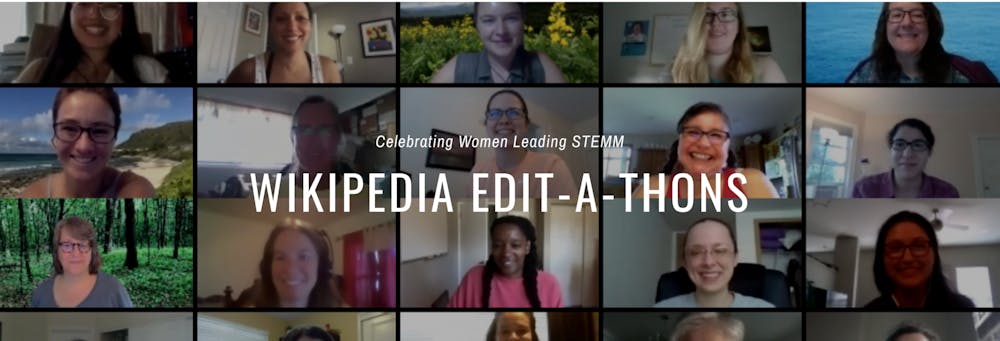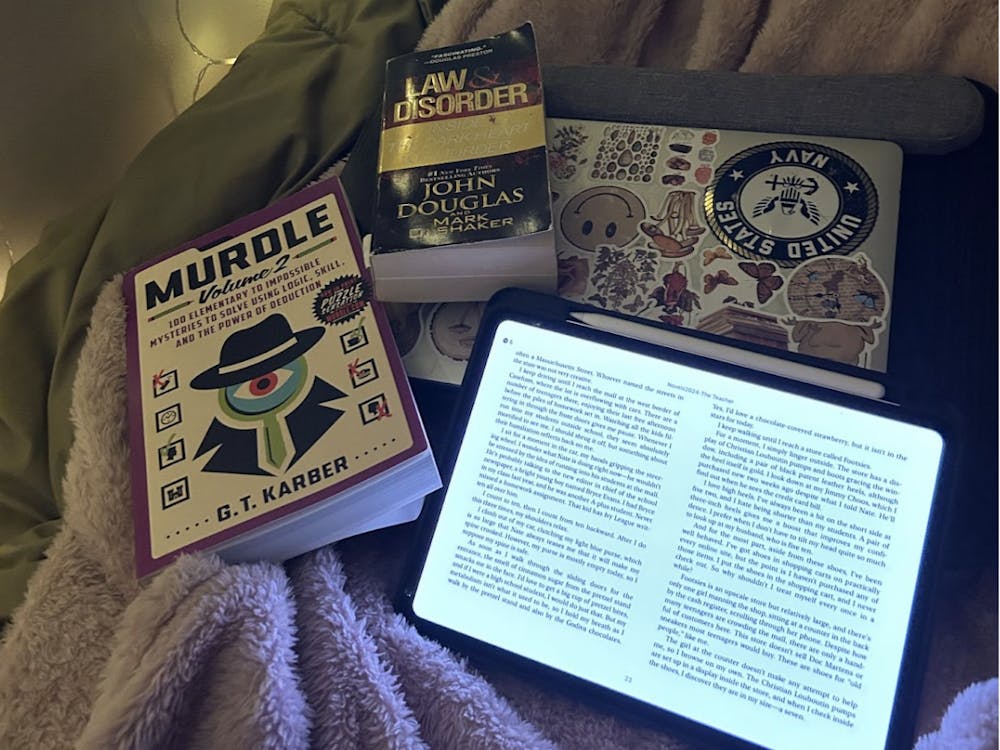Tackling the underrepresentation of scientists with disabilities head on, the Equal Access in Science and Medicine Committee, Advocates for Disability Awareness and the Disability Health Research Center coordinated with 500 Women Scientists to hold a Wikipedia edit-a-thon on Dec. 3. This event also celebrated International Day of Persons with Disabilities.
61 million adults, or roughly one in four individuals, in the U.S. currently live with a disability. In the fields of science, technology, engineering and math (STEM), about 10% of employed scientists and engineers have a disability, though this is likely an underestimate for many reasons, including that scientists with disabilities often do not disclose their disability for fear of having their contributions undervalued or of being passed up for opportunities.
Erica Avery, a doctoral student in the Cellular & Molecular Physiology program who co-organized the event, noted that this general attitude in academia can feel isolating in an interview with The News-Letter.
“The thing that a lot of people with disabilities generally in academia struggle with is having a sense of community. Almost everyone that I talk to, that’s like their number one complaint,” she said in an interview with The News-Letter. “And I think that this [event] is something where we can show all of the people that exist in our field who we can feel connected to and have that sense of belonging that everyone feels is missing right now.”
The edit-a-thon was the idea of Bonnielin Swenor, director of the Disability Health Research Center. It was also organized by Nicole Pannullo, a doctoral student in the Cellular and Molecular Medicine Program, and Nicolette Vigiano, a master’s student in the Public Health Biology program, in addition to Avery.
Pannullo discussed how the purpose of the edit-a-thon was not only to increase representation of scientists and doctors with disabilities but also to build more of a community at Hopkins for students and faculty living with disabilities in an interview with The News-Letter.
“Working together, creating these pages, doing these action-oriented things to help increase representation of disabled scientists and clinicians in STEM — I want to see that bring our community closer together,” she said.
The event took place over Zoom and began with an introduction to Wikipedia by Maryam Zaringhalam, a molecular biologist who serves on the leadership board of 500 Women Scientists. Wikipedia is the world’s largest encyclopedia and celebrated its 20th birthday earlier this year on Jan. 15.
Zaringhalam presented on the power Wikipedia holds for shifting the framing of who does STEM and who belongs in STEM. She told an anecdote about Marie Curie’s Wikipedia page, which Curie originally shared with her husband, Pierre Curie. According to Zaringhalam, when a Wikipedian created Marie Curie's own page in 2002, they ensured the encyclopedia's readers could recognize and celebrate Curie's unique contributions independent of her husband’s.
After a tutorial about editing Wikipedia pages, citing sources, finding research sources online and other logistical details critical to being a Wikipedia editor, participants of the edit-a-thon were set loose with a list of names and links to pages that either needed improvement or were not yet created.
One limitation of Wikipedia, according to Zaringhalam, is the “notability” requirement, which requires prospective candidates for entries to have research contributions, leadership roles, awards, honors or distinguishments. The last three qualities can be difficult to meet, Zaringhalam noted, because people from underrepresented groups are often not nominated for these distinctions.
Vigiano highlighted that this event will also impact staff at Hopkins in an interview with The News-Letter.
“The edit-a-thon showing us that there are role models in the field and bringing that into Hopkins as a workshop may make more staff and faculty willing to be more communicative about their own struggles and their own disability,” she said.
According to co-founder Jimmy Wales, Wikipedia’s mission is to help make a world “in which every single person on the planet is given free access to the sum of all human knowledge.” According to statistics from the Pew Research Center, Wikipedia gets more than 18 billion page views a month, which means it is one of the most visited websites in the world.
Pannullo emphasized the significance of the edit-a-thon to support scientists with disabilites and inspire youth with disabilities to pursue careers in science and medicine
“This [event] is a really great way for us to celebrate people with disabilities and to create these Wikipedias to show that there are a lot of successful scientists and clinicians out there with disabilities and that these people can serve as positive role models and inspirations for people with disabilities who may not be sure if they belong in science or medicine when they do,” she said.
Vigiano reiterated how important it is for youth with disabilities see their likenesses in accomplished scientists.
“I hope that when a little kid who has some kind of disability and their parent google ‘disabilities’ or ‘someone in STEM with disabilities,’ we can make something pop up,” she said.
The edit-a-thon continues all this week, wrapping up on Friday, Dec. 10. The organizers are open to hosting similar events in the future and hope the edit-a-thon will have a ripple effect among the participants.
Avery discussed the broader impact of the edit-a-thon.
“We want to normalize having a disability in the workforce and really reiterate that we’re everywhere; we’re all around you and you just don’t know it. So when you go to read that book or look up this famous person, that you can see that in addition to having all of the success they’ve had, they also have a disability,” she said. “Hopefully the people participating and writing can take solace in knowing that they are providing that for a greater community than just ourselves.”
The organizations behind the edit-a-thon also host a variety of other events, including lecture series, book clubs and documentary viewings that welcome all students and faculty.





